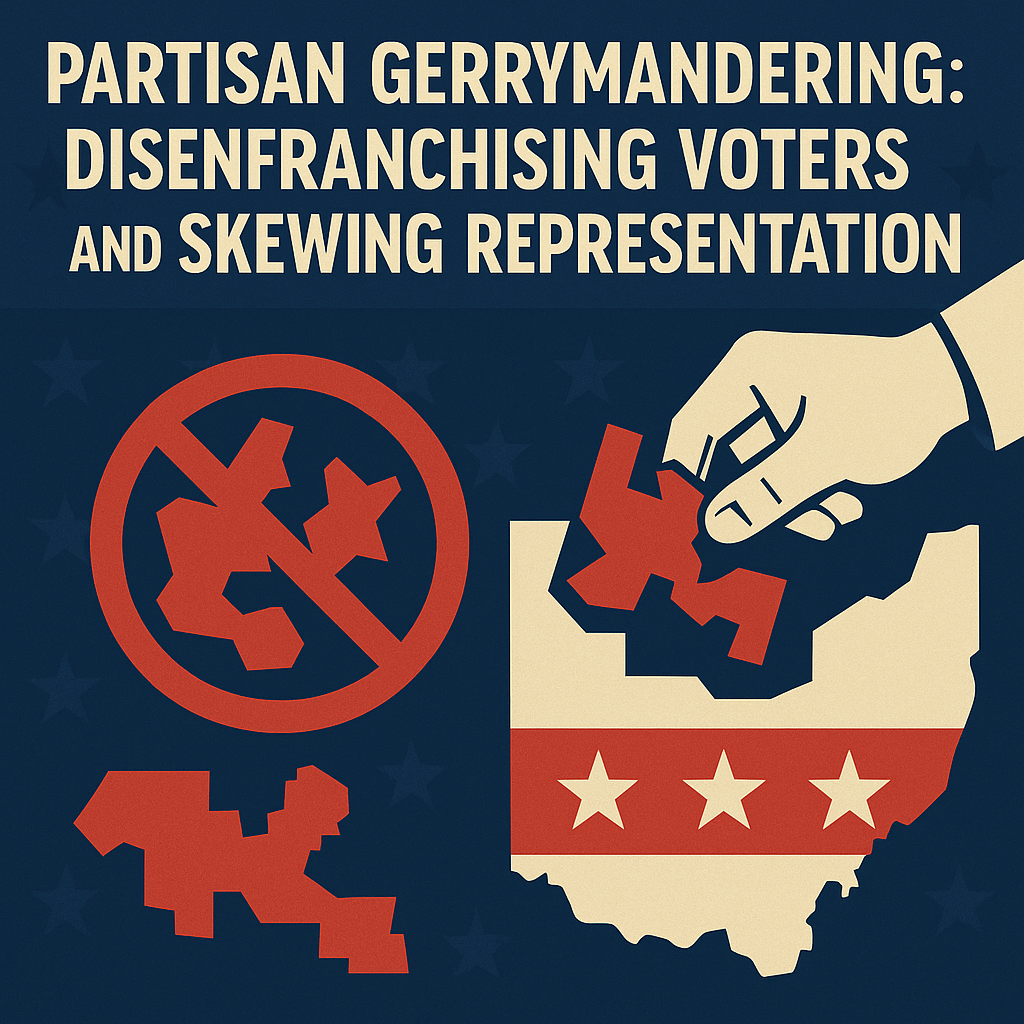
Partisan Gerrymandering: Disenfranchising Voters and Skewing Representation
TL/DR
Partisan gerrymandering, particularly by Republicans since 2010, has significantly skewed congressional representation, as evidenced by a net benefit of 16-17 seats.
A case study in North Carolina highlights how gerrymandering can disenfranchise voters, with a recent court ruling potentially increasing Republican House seats from 8 to 11 despite Democrats outnumbering registered Republicans.
Nationwide, partisan gerrymandering has led to a congressional composition (e.g., 51% Republican in the House) that does not align with the actual voter population by party affiliation, posing a threat to American democracy and voter trust.
